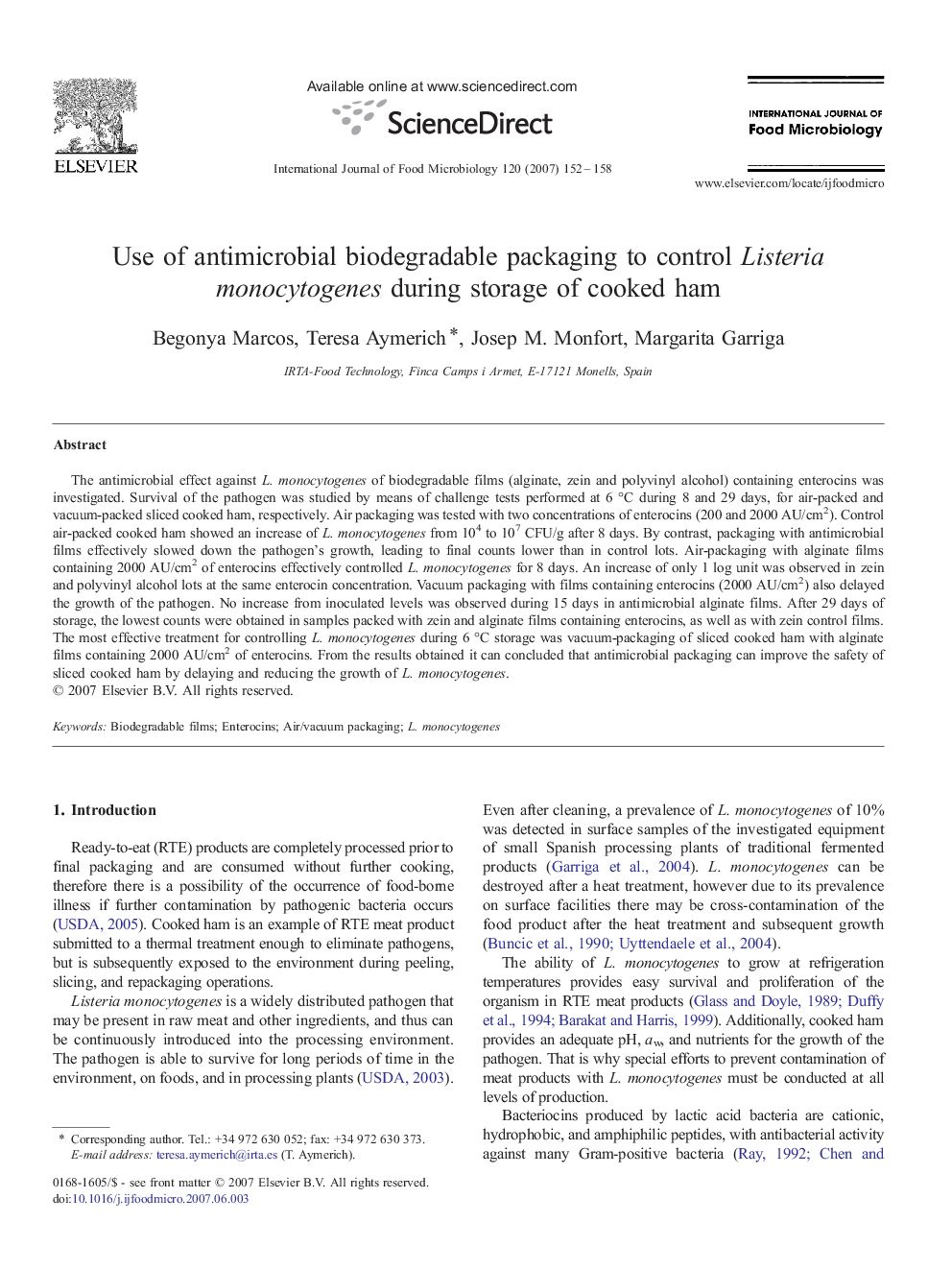| Article ID | Journal | Published Year | Pages | File Type |
|---|---|---|---|---|
| 4369064 | International Journal of Food Microbiology | 2007 | 7 Pages |
The antimicrobial effect against L. monocytogenes of biodegradable films (alginate, zein and polyvinyl alcohol) containing enterocins was investigated. Survival of the pathogen was studied by means of challenge tests performed at 6 °C during 8 and 29 days, for air-packed and vacuum-packed sliced cooked ham, respectively. Air packaging was tested with two concentrations of enterocins (200 and 2000 AU/cm2). Control air-packed cooked ham showed an increase of L. monocytogenes from 104 to 107 CFU/g after 8 days. By contrast, packaging with antimicrobial films effectively slowed down the pathogen's growth, leading to final counts lower than in control lots. Air-packaging with alginate films containing 2000 AU/cm2 of enterocins effectively controlled L. monocytogenes for 8 days. An increase of only 1 log unit was observed in zein and polyvinyl alcohol lots at the same enterocin concentration. Vacuum packaging with films containing enterocins (2000 AU/cm2) also delayed the growth of the pathogen. No increase from inoculated levels was observed during 15 days in antimicrobial alginate films. After 29 days of storage, the lowest counts were obtained in samples packed with zein and alginate films containing enterocins, as well as with zein control films. The most effective treatment for controlling L. monocytogenes during 6 °C storage was vacuum-packaging of sliced cooked ham with alginate films containing 2000 AU/cm2 of enterocins. From the results obtained it can concluded that antimicrobial packaging can improve the safety of sliced cooked ham by delaying and reducing the growth of L. monocytogenes.
